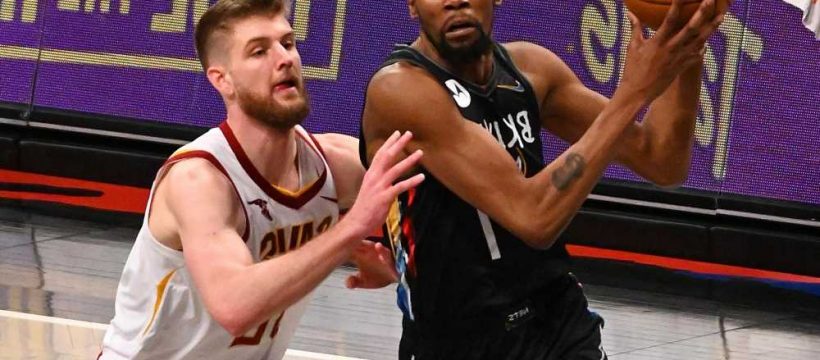More from:
Ian O'Connor
Nets' status as favorites comes with heavy burden of pressure
Long-suffering Knicks fans deserve this playoff moment
The truth behind Kyrie Irving, ‘the most misunderstood man in sports'
The Nets have no excuse not to win it all
Luis Rojas' temperament is exactly what these Mets need
The day after Kevin Durant blew out his Achilles tendon in Game 5 of the 2019 Finals, I asked Tiger Woods why athletes in championship moments are willing to risk significant injury in pursuit of victory. Woods had famously won the 2008 U.S. Open by playing 91 holes, including an extended playoff, with a torn ACL and a broken leg.
Woods spoke of “how solemn [Durant’s] face went” after he planted against Toronto’s Serge Ibaka on the right wing, dribbled between his legs, and attempted to drive to his left before he surrendered the ball, hopped toward the sideline, and crumbled to the court. “And no one can help you,” Woods said.
“That’s the hard part. … That’s what people don’t see, all those long hours that really do suck. And why do we do it? Because we’re competitors. As athletes our job is to make the human body do something it was never meant to do, and to do it efficiently and better than anybody who is doing it at the same time. Well, sometimes things go awry. And we saw it last night with Kevin.”
We all saw it that night with Kevin, how he risked everything — his health, his career legacy, and his upcoming free-agent score even though his Golden State Warriors were trailing the Raptors 3-1, and likely to lose the series regardless. We all saw those tough-to-watch replays of the tendon rupturing in his leg, like a taught but frayed rope that finally gave way.
The people who had questioned whether Durant had stayed out too long with his calf injury, or whether he had already, in his mind, abandoned the Warriors for the Knicks or Nets or someone else ended up looking pretty foolish. Durant knew his body like nobody else knew his body. So he had to know, deep down, when he decided to play Game 5 that something could go terribly wrong. He had to know he was risking a lot for little return, given that Golden State wasn’t likely to win three consecutive sudden-death games, and that he already knew he’d almost certainly be playing for a different team the following season.
Durant played anyway, a decision that led to surgery in New York before he signed with Brooklyn for four years and $164 million, and joined Kyrie Irving. Durant spent 18 months on the sideline, skipping Bubble Ball along the way, before finally returning to the court in December against his old team, the Warriors, and scoring 22 in a blowout victory. That was a big night for Durant. So was Saturday night in Brooklyn, when the 6-foot-10 forward was scheduled to make his return to the playoffs in Game 1 against the Celtics, one night after Steph Curry and the others Durant left behind were eliminated by Memphis in the play-in tournament.
The Warriors haven’t made the playoffs in their two seasons without KD, who played in just 35 games this year but who certainly helped the Nets secure the No. 2 seed in the East. Durant averaged 26.9 points per game, better than his average across his three seasons with Golden State. He was good for 7.1 rebounds and 5.6 assists, and he shot nearly 54 percent from the floor (including 45 percent from 3-point range). The Nets were 23-12 when he played.
But now it’s legacy time again for Durant, who has a great opportunity to add to the two championships he won with the Warriors. He was widely criticized, of course, for leaving Oklahoma City for a Golden State team that had already won a title, that had beaten his Thunder in the conference finals, and that had established itself as a ready-made champ for a superstar in need of a ring. That criticism stung Durant, a sensitive type who has a long memory when it comes to real or imagined slights.
In Brooklyn, he doesn’t have to worry about critics saying he’d boarded a train that had already arrived at the station. Durant and Irving did come as a package deal, but they had no guarantee on what was to become of the Nets. They had no idea if management could acquire a third superstar the likes of James Harden. If the Nets win this championship, no credible voice can tell Durant that it wasn’t self-made.
Not that he deserved any criticism in the first place. Durant knew he would be ultimately judged on his ring collection, so he smartly signed up with Golden State. And then in his final 2019 game, he put everything on the line for that franchise, and paid a heavy price for it.
In the end, Kevin Durant made it all the way back to the postseason before the Warriors did. Nobody should ever again question his toughness or his heart.
Share this article:
Source: Read Full Article

